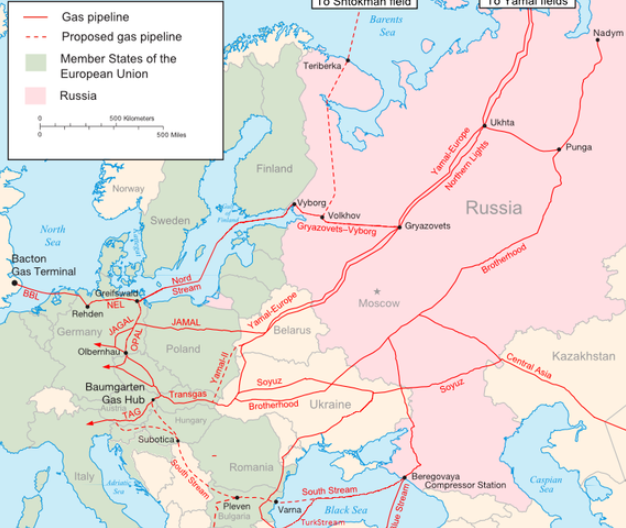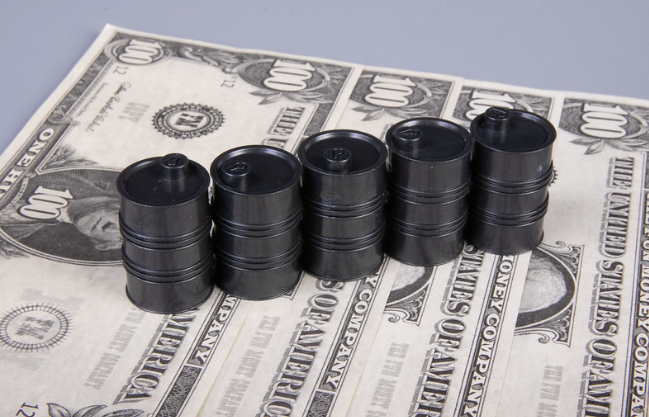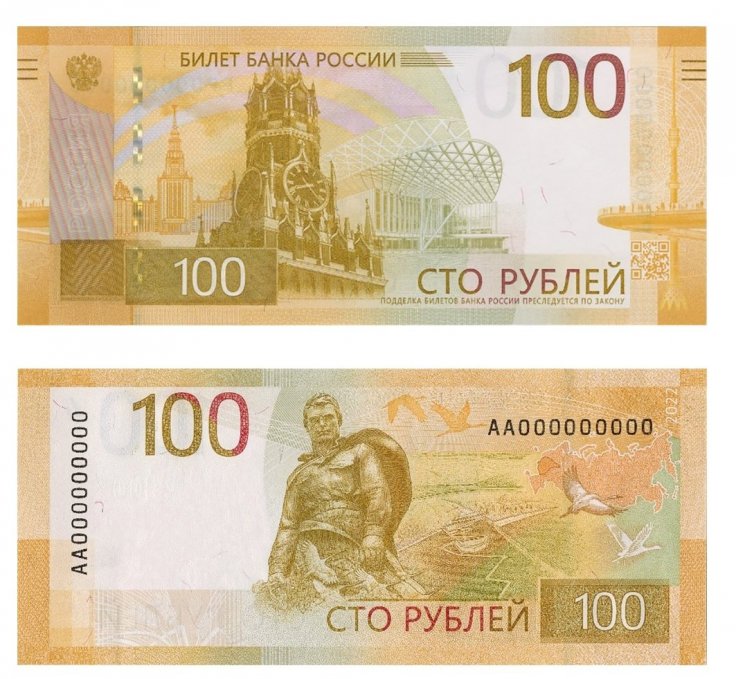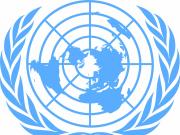The center-piece of the Western strategy to counter Russia in the aftermath of the Ukraine war was economic sanctions. The United States, UK and the European Union rolled out crippling sanctions against Moscow with surprising alacrity. The expectation was that the sanctions would destroy Russia's economy, forcing the Kremlin to roll back its ambitious military goals in Ukraine quickly.
The sanctions met some of their immediate goals. Russian assets abroad were frozen, the country's sovereign ratings dipped and Moscow was forced into a technical default on its bonds. The West's broader strategy revolved around hitting Russia where it hurts the most. The calculations were that an embargo on Russian fossil fuels will cut off funds, pushing the Russian economy into a state of despair and disrepair.

This, however, failed. According to the latest figures, Russia's revenue from energy export increased beyond conservative expectations. A Finland-based think tank has calculated that Russia made $158 billion (€158 billion) in energy exports in the six months of the war, from February 24 to August 24.
"Surging fossil fuel prices mean that Russia's current revenue is far above previous years' level, despite the reductions in this year's export volumes," the Centre for Research on Energy and Clean Air (CREA) said.
A few weeks ago, Reuters news agency had reported that Russia's earnings from energy exports will touch $337 billion in 2022, which is a 38 percent rise from 2021. Citing a Russian economy ministry document, the agency reported that higher oil export volumes and rising prices contributed to a spike in Russia's income from oil and gas.

It certainly looks like the West's strategy has backfired, considering that an unprecedented fuel price hike resulted in inflationary pressures in the US and Europe, forcing central banks to raise rates and inadvertently ring in economic contraction and job losses. In the US gasoline prices hit an all-time record, while Europe saw a 400 percent rise in natural gas prices.
However, beyond these, there are a few other interesting points to note as well.
1. Who is Funding the Russian War?
The US and the European Union had vociferously exhorted Asian nations to curtail Russian energy imports so as to deny Moscow the funds to run its war machine. However, the latest data shows that Europe, despite all its grandstanding, was the region that 'funded' Russia's war on Ukraine most generously.
According to the think tank, the European Union accounted for a whopping 54 percent of Russian exports. In other words, the EU bought Russian energy worth 85 billion euros.
2. Who are Russia's Friends?
The US and European Union's efforts to drive a wedge between Russia and its allies failed. The anti-war rhetoric, which rings hollow inasmuch as the EU's thirst for Russian energy is considered, failed to frighten away the Asian nations like China and India.
While China bought Russian energy worth 35 billion euros, India increased its spending on Russian imports to 6.6 billion euros. Japan's share of Russian energy imports stood at 2.5 billion euro and South Korea's was 2 billion euros. And Nato member Trukey imported a whopping 10.7 billion euro of Russian energy, while US ally Egypt's Russia import bill totaled 2.3 billion.
3. Is the EU Stance Logical?
The European Union entirely stopped buying Russian coal, citing the Ukraine war. However, when it comes to Russian oil, the EU adopted a more cautious stand. It decided to phase out Russian imports over the years. And when it comes to natural gas, the EU stance is, paradoxically, not to limit flows from Russia at all. Major EU nations have been, in fact, hankering after more of Russian gas, anticipating a possible crunch in the winter.

4. What's Russia's Economic Outlook?
At the beginning of the war, and when the sanctions began impacting the Russian economy, Moscow was worried about the long-term impact of the western actions. According to the Kremlin's initial estimates, the sanctions were to result in a more than 12 percent contraction in the economy. However, this began to change over the next few months. Russia now expects its gross domestic product (GDP) to shrink only 4.2 percent this year, according to Reuters.
"Overall, economy ministry forecasts seen by Reuters news agency earlier this week suggest the Russian economy is dealing with sanctions related to Russia's invasion of Ukraine better than Moscow initially feared and the economy will contract less than expected," the agency says.
5. Russia Expects Energy Exports to Stay Robust
Even as the West is plotting various measures against Russia, including phasing out oil and natural gas imports and banning coal imports, Moscow's energy sale outlook remains healthy. A Russian economy ministry document showed that it expects energy output and exports will stay elevated until the end of 2025. This happens primarily because of two factors - Russia has been increasing production and Russia's Asian customers like China, India, Japan and South Korea have been increasing purchase.
6. What Can the West Do?
The CREA report says that the West should press ahead with the G-7 plan to enforce a price cap on Russian crude and natural gas. Interestingly, G7 countries last week pledged again to impose a price cap on Russian crude. There have also been calls to influence the international shipping industry into denying Russia essential services. Under the plan, the EU could ban the use of European-owned ships and European ports for shipping Russian oil to third countries. The CREA also repeats the earlier plan to get the UK insurance industry to deny coverage to Russian vessels.
7. Why a Plan to Enforce a Price Cap on Russian Energy Would Fail
The plan is to form a buyers' cartel and force Moscow to sell its oil and gas at dirt cheap prices. But this plan will fail because it is too complex to implement. And, Russia is not in the league of Iraq that can be manipulated easily.
The target is to offer a price just above production costs, so much so that Russia will not make the money it wants to run the war machine. But if Russia decides to retaliate by reducing oil or gas exports the plan will simply fail and instead, cause a price boom that the West can't deal with.
Russia has already suggested that in the event of such a move from the West, it is prepared to revise its delivery contracts with Western countries that are critically dependent on Russian oil and gas.
Another big obstacle is that large Asian buyers like China and India will certainly come in the way of the western plans. When the West rolled out the sanctions against Russia, India and China defied them and continued buying Russian crude at a hefty discount.








